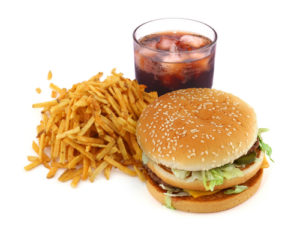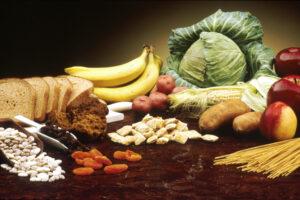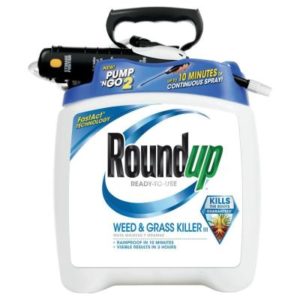 Ultra-processed foods are linked to many health harms, including heart disease and type 2 diabetes. A recent large study of women found that they are also linked to colon adenomas (polyps) - which are precursors to colorectal cancer. The more ultra-processed foods in the diet, the higher the risk of polyps (adenomas).
Ultra-processed foods are linked to many health harms, including heart disease and type 2 diabetes. A recent large study of women found that they are also linked to colon adenomas (polyps) - which are precursors to colorectal cancer. The more ultra-processed foods in the diet, the higher the risk of polyps (adenomas).
There was a 45% greater risk of polyps in the group eating the most ultra-processed foods (about 10 servings per day), when compared to those eating the fewest ultra-processed foods (about 3 servings per day).
The researchers point out that the rise in the rates of colorectal cancer has occurred with the rise of ultra-processed food consumption. Currently, more than 50% of the diet of Americans consists of ultra-processed foods.
Other researchers suggest that there may be other contributing factors to the rise in colorectal cancer, such as low fiber in the diet (typical Western diet), and microplastics in the environment, which are found in our food, water, and beverages.
Bottom line: Eat a diet rich in whole grains, fruits, vegetables, nuts, seeds, and legumes. This will increase the amount of fiber in your diet, and lower your intake of ultra-processed foods. Read ingredient labels and if there is something that normally is not found in a person's kitchen, then it is ultra-processed.
Examples of ingredients found in ultra-processed foods: emulsifiers, carrageenan, mono- and diglycerides, soy lecithin, polysorbate, cellulose, colors, titanium dioxide, high fructose corn syrup, hydrogenated oils, dextrose, whey protein, nitrates, artificial flavors, natural flavors, colors, etc.
From Medical Xpress: Ultra-processed foods tied to higher rates of early-onset colorectal cancer precursors in adults
Colorectal cancer used to be associated with old age, but diagnoses have become increasingly common in adults aged 50 or younger particularly in high-income countries like the United States. The reason for this trend is unclear, but a new study led by Mass General Brigham researchers, as part of the Cancer Grand Challenges PROSPECT team, suggests an important link to ultra-processed foods that merits closer investigation. ...continue reading "Ultra-Processed Foods and Colon Polyps"



 Good news for coffee drinkers. A recent
Good news for coffee drinkers. A recent  A problem with the Western diet that most of us eat is that it is low in fiber. A diet low in fiber and large amounts of ultraprocessed foods is suspected to play a role in the increasing incidence of intestinal bowel diseases (IBD) in the US and Canada.
A problem with the Western diet that most of us eat is that it is low in fiber. A diet low in fiber and large amounts of ultraprocessed foods is suspected to play a role in the increasing incidence of intestinal bowel diseases (IBD) in the US and Canada. Some more good news on the peanut allergy and other food allergy front. In 2015, medical advice changed to : Yes, please introduce tiny amounts of foods such as peanuts and eggs in the first year of life to prevent food allergies. And...since then, the incidence of food allergies, including peanut allergies, in children has dramatically gone down when that advice is followed.
Some more good news on the peanut allergy and other food allergy front. In 2015, medical advice changed to : Yes, please introduce tiny amounts of foods such as peanuts and eggs in the first year of life to prevent food allergies. And...since then, the incidence of food allergies, including peanut allergies, in children has dramatically gone down when that advice is followed. Remember when back in 2015 the IARC (International Agency for Research on Cancer) said that the pesticide glyphosate (the active ingredient in Roundup) is a probable human carcinogen (cancer causing)? And the American chemical industry and FDA pooh-poohed that? Well, there have been a number of studies since then finding that yes, glyphosate results in tumors and other health harms, and is cancer causing (carcinogenic).
Remember when back in 2015 the IARC (International Agency for Research on Cancer) said that the pesticide glyphosate (the active ingredient in Roundup) is a probable human carcinogen (cancer causing)? And the American chemical industry and FDA pooh-poohed that? Well, there have been a number of studies since then finding that yes, glyphosate results in tumors and other health harms, and is cancer causing (carcinogenic). There has been lots of research in the past decade over the benefits of eating a diet rich in fruits, vegetables, whole grains, nuts, and legumes, especially a Mediterranean style diet. Health benefits include lowering chronic inflammation and a lower incidence of a number of chronic diseases, including type 2 diabetes.
There has been lots of research in the past decade over the benefits of eating a diet rich in fruits, vegetables, whole grains, nuts, and legumes, especially a Mediterranean style diet. Health benefits include lowering chronic inflammation and a lower incidence of a number of chronic diseases, including type 2 diabetes.
